How do we welcome children and youth?
by Kiersten Moore
We have vibrant children’s programs going on at that are engaging for families and should be continued in one form or another. Truth, Healing, and Reconciliation; Coming of Age; Our Whole Lives; Cosmology explorations; Spirit Play, garden time, etc., as well as peer community building among our children and youth. But what draws the most families in attendance are our special events: the ancestor shrine, pageants, wassail, everybody’s birthday, the services with children directly involved, and ritual celebrations.
The number of children who come to the children’s program on Sunday regularly has increased this year and involves 11 to 12 families, 21 children. However, we serve 50 to 60 children over the course of a year, including visitors; those who attend off and on; and members whose children do not connect with “Sunday School”. For every child who engages with our Sunday morning program, there are two for whom it doesn’t work either for them or their family as a whole. How do we serve these families?
It’s been hard to retain young people into the high school years and beyond in the absence of direct peer friendships. This is partly due to intense scheduling and many demands on teens and parents. I maintain that the absence of teens in our pews demonstrates youth do not feel connected to our services, that they haven’t found a place within adult worship or the larger congregation. Even when youth group is strong, few youths have come to worship at 11 am, even though that time was set specifically with teens in mind back in 2005, and youth group meets after lunch. How do we engage more fully with our youth and young adults?
We engage our young people best by establishing whole congregation worship from an early age. Connie Goodbread, congregational life staff of the Unitarian Universalist Association Southern Region, says, “Unitarian Universalism is all we teach. The congregation is the curriculum.”
Children learn by doing and by observing from a very young age.
If we do not include children fully within our worship services we implicitly teach them that worship in the sanctuary is not for them, at least not past the first 10 or 15 minutes. If their only place of belonging is the Religious Exploration gatherings, how can we expect them to come back after they graduate? What do they have to come back for?”
The biggest challenge to engaging children and adults in faith topics at the same time is the culture shift required to make it happen successfully. It takes work and commitment. There are many examples of UU congregations and other denominations worshipping all together that we can draw from.
Enjoying some aspects of worship more than others is tied to the person, not the age.
There are adults for whom the sermon topic makes their decision on which Sundays to attend, but it is important to acknowledge that we have adult members in our congregation who do not come for the sermon, but are fulfilled each Sunday by other aspects of worship. The sermon is not the be-all and end-all to worship.
Some children love music and singing; others the story or the chalice lighting.
Some children like silent meditation, others are bored by it—this is the same for adults. We teach how to be in the sanctuary together by modeling, by quietly answering children’s questions, and by quietly drawing their attention to the rituals and interpreting what people are saying. We teach them they are valued by accepting their child noises as they learn to be in community.
I see three areas to concentrate on improving:
There are worship design considerations.
Designing worship for multiple intelligences (language, aesthetic, interpersonal, kinesthetic, etc.) helps many people of all ages connect with the aspects of worship that speak to them the most.
We should always strive to make our sermons and whole worship accessible. When we design good worship aimed at engaging a diversity of people—even if they aren’t currently in our pews—we end up with worship for a diversity of ages, abilities, backgrounds, and personalities. We move closer to the beloved community we want to be.
There are physical space issues to address when welcoming whole families to be together in worship.
We want to make it easy and welcoming for both parents and children. This means addressing seating, pews, floor seating, and safe, inviting space for young children to wiggle.
Children will be most engaged when at the front of the sanctuary, right in with the action, where they can see more than the back of our pews and heads; where their need for some movement is accommodated.
There are expectation issues.
Many of us have a personal expectation of comfort free from distraction. This expectation comes from a place of privilege. Why is a child talking more disturbing than an adult’s cough or sneeze? They’re close to the same volume.We must develop an expectation to welcome and support children and parents.
Rabbi Menachem Creditor stated to his synagogue when concerns about child noise were raised: “A sanctuary is not a sanctuary from children. It is a sanctuary we’ve built for our children, and their children after them.” As a parent I personally find managing my toddler’s behavior in worship involves distinct levels of stress depending on whether people around us are frowning or smiling. Imagine which facial expressions put a parent at ease and which encourage them to leave. Smiles build community.
I encourage you to read more on this subject from Kim Sweeney, the author of The Death of Sunday School and the Future of Faith Formation, who has a very thorough list of resources on Whole Congregation Worship at her website: www.courageousfaithconsulting.org
Worshipping together does take work and intention, I hope we are up for the challenge!
If Sunday School isn’t for everyone … What is?




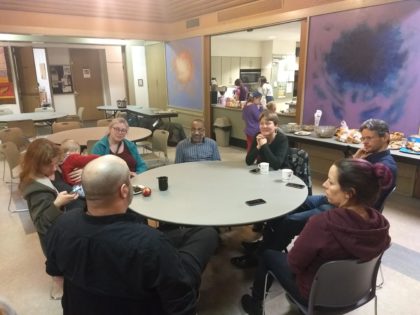 members along with the Saturday Messy Church multigen-family event. The Our Whole Lives (O.W.L.) trainees remarked that they were so well taken care of, the weekend felt like a vacation—which means a lot when you are spending 20 hours in class!
members along with the Saturday Messy Church multigen-family event. The Our Whole Lives (O.W.L.) trainees remarked that they were so well taken care of, the weekend felt like a vacation—which means a lot when you are spending 20 hours in class!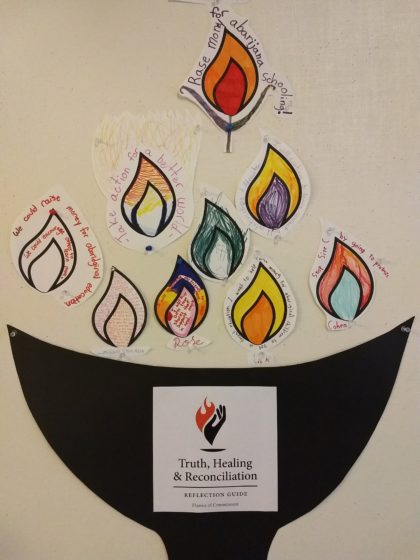
 What a simple solution. No rainforest curriculum, no environmental action, just opportunities to be in the natural world with modeling by a responsible adult.” –David Soebel, 1998 YES! Magazine
What a simple solution. No rainforest curriculum, no environmental action, just opportunities to be in the natural world with modeling by a responsible adult.” –David Soebel, 1998 YES! Magazine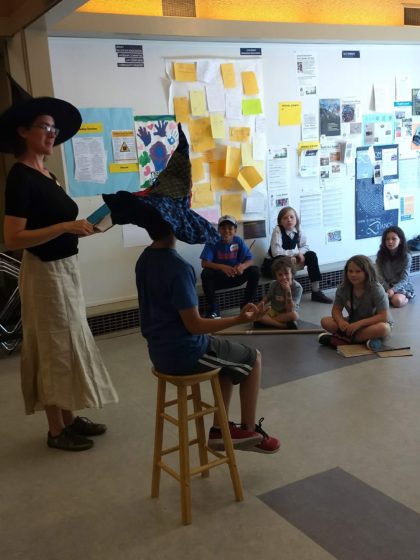
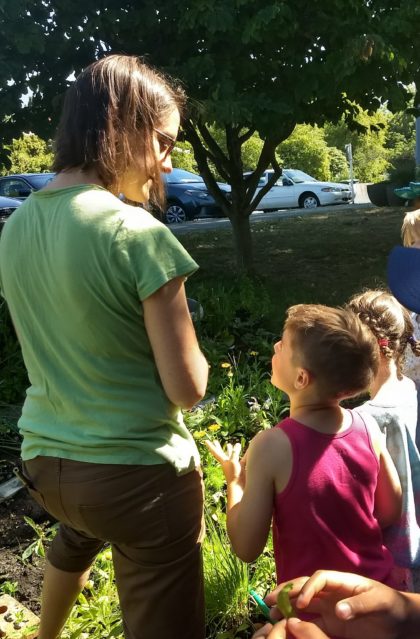
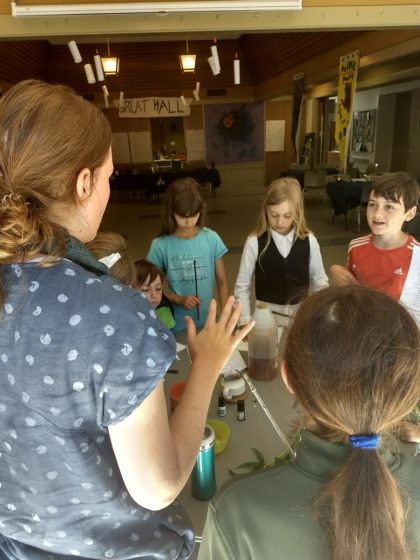
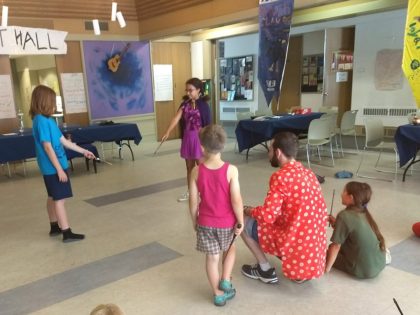
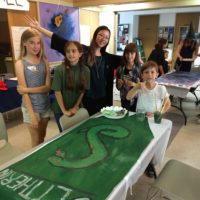
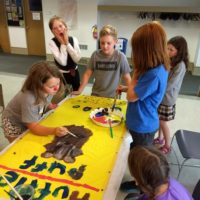

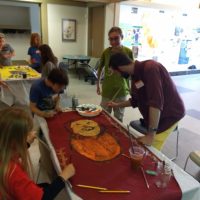
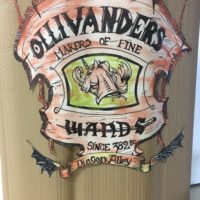
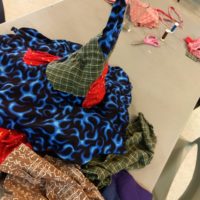
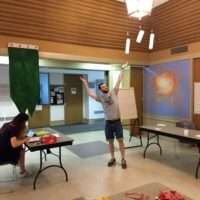
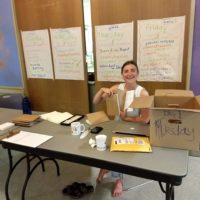
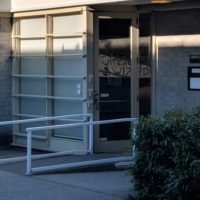
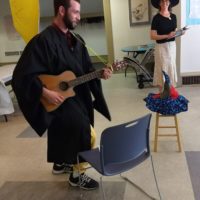
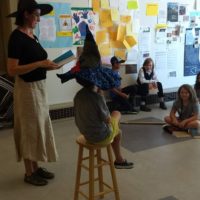
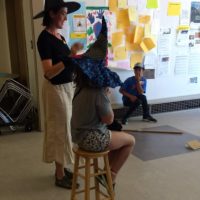
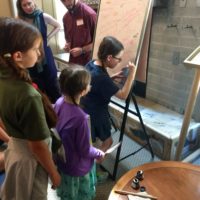
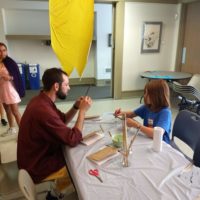
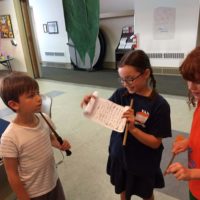
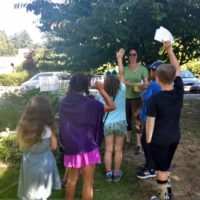
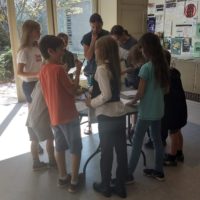
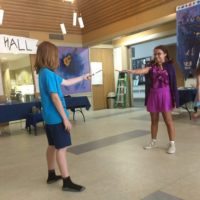
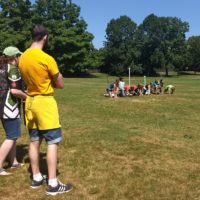

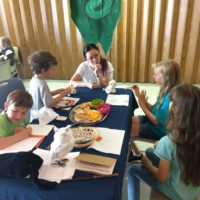
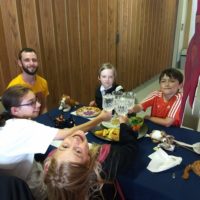
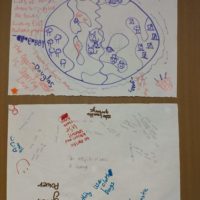
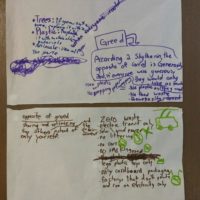

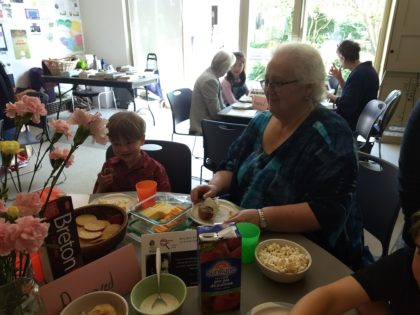 famous Unitarian Universalists that each pair had been connected through—find your famous UU, find your pal, eat and talk together. After the whole congregation worship service, “The Work We Do”, let out Pals started to find their place and find each other. My four-year-old who was sure he wanted me to sit with him? He chatted easily with his Pal for more than half-an-hour; a month of writing letters had taken away the layer of strangeness that he would usually feel with an adult not in the family.
famous Unitarian Universalists that each pair had been connected through—find your famous UU, find your pal, eat and talk together. After the whole congregation worship service, “The Work We Do”, let out Pals started to find their place and find each other. My four-year-old who was sure he wanted me to sit with him? He chatted easily with his Pal for more than half-an-hour; a month of writing letters had taken away the layer of strangeness that he would usually feel with an adult not in the family.

 Why receive the basket?
Why receive the basket?
You must be logged in to post a comment.